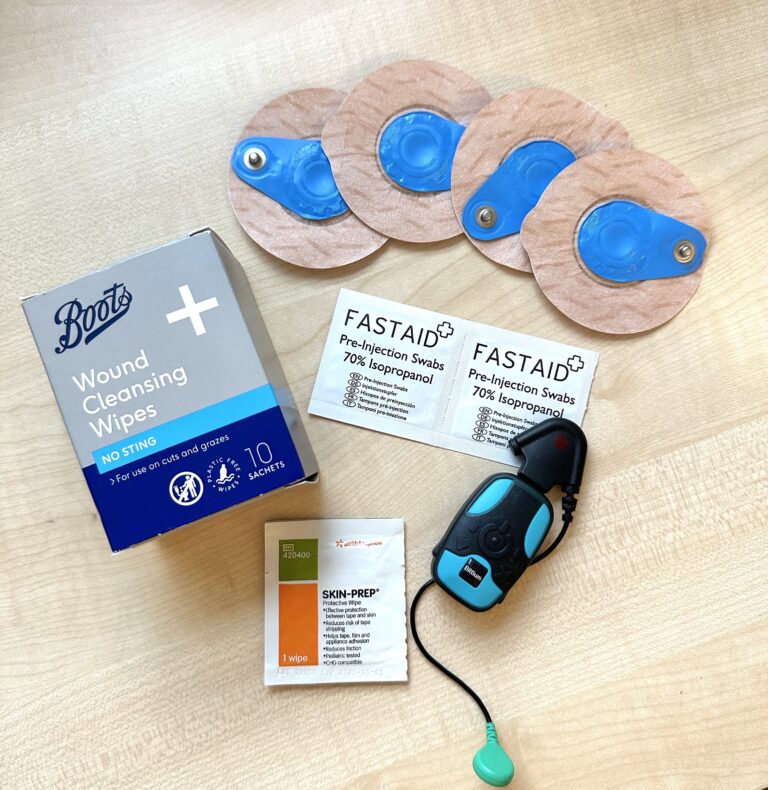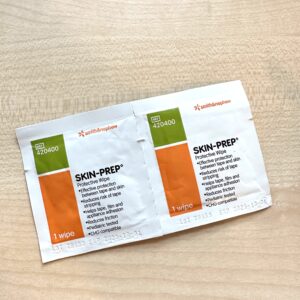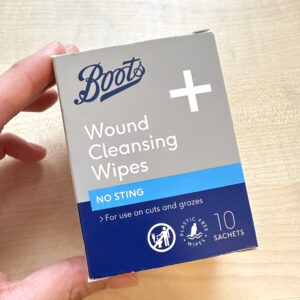
You’ve been scheduled for a holter test: now what? What does that mean? What do I need to do? How do I shower with it? Is there anything I need to prepare? What do I wear?
These were all questions that ran through my head when I was ordered a 7 days holter test. I tried googling, going on youtube, but there was very little information out there about exactly how it goes. For those out there who have skin sensitivity and fragility, I totally get how WE NEED TO KNOW, because there are things we need to prepare for! We can’t just jump into a test with adhesives stuck on us for DAYS in a row with no plan.Today, I just wanted to share some tips purely from a patient perspective, in terms of how to prepare yourself for a holter test.
SKIN PREP
Always, remember your skin prep. Skin prep essentially creates a barrier between your skin and the adhesive, which can help prevent the adhesive from reacting directly with your skin. It also makes it easier for the tape/electrode to adhere to your skin. I unfortunately made the mistake of forgetting my skin prep on day 1, and by the time day 2 hit, I could only attempt to fight off fire and use the skin prep to prevent more significant aggravation. It definitely would’ve been much better if I had done it on day 1.
Extra note regarding skin prep: I highly suggest TRYING out your skin prep beforehand. There are multiple brands selling skin prep, and I have tried some brands which were soooo sticky that it caused my skin to rip off with the tape. The skin prep from Smith and Nephew personally works best for me, and is the one shown in the image here. (I am not affiliated with this brand in any way)
CLEANING THE SKIN: ALCOHOL WIPES?
If you are wearing the holter for a prolonged period of time, and you have significant skin sensitivity, it’s almost impossible for the skin not to have any reaction at all. In this case, I would say: think ahead!! Alcohol wipes can REALLY hurt when you already have an open wound. I chanced upon this “Wound Cleansing Wipes, no sting” from Boots in the UK by chance, and it’s been such a life saviour. When changing electrodes, I usually use this to cleanse the area before applying the skin prep. Occasionally I do use alcohol wipes after this too, but that is probably just me being paranoid. This “no sting” wound cleansing wipe was really helpful, especially on days where my skin was not pleased to say the least.
ASK FOR EXTRA ELECTRODES
My doctor was amazing: he provided me with 20 electrodes (which allowed me 10 changes, since my holter uses 2 electrodes) for a 7 day test, even though he said the electrodes were already hypoallergenic. I realise that it isn’t standard practice to provide that many spare electrodes. So if you do have sensitive skin and anticipate that you will need to change the electrode to give your skin time to breathe during the test, please speak to your nurse/doctor and request for spares.
HOW TO SHOWER WITH YOUR HOLTER MONITOR
This is definitely a question for your doctor. I was lucky enough to be provided with a holter monitor that is waterproof, so showering was extremely easy for me. This is extremely dependent on the model of the holter monitor, so speak to your doctor/nurse (or whoever is fitting the holter for you).
WHAT TO WEAR?
In general: loose fitting clothes. This is once again, extremely dependent on the model of your holter monitor. If you take a google, you will see tons of very varied looking holter monitors. I was very fortunate to have a simplistic and rather sleek looking holter monitor, so I could even wear crop tops and slightly fitting clothing.
HOW TO KNOW IF I HAVE RECONNECTED MY HOLTER MONITOR CORRECTLY?
PLEASE ask your doctor beforehand. Personally made the mistake of not asking, and massively panicked when I disconnected it for the first time. The power of google allowed me to find a user manual for my particular model of the holter monitor, so that definitely saved me. If you are a panicky person like me, please please ask beforehand. That would save you some cold sweat (especially since these tests are expensive, and no one wants to do it again just because your readings weren’t being recorded).
Overall, communicate with your doctor. Think through what you may need in advance, and ask all the questions you have/ get what you need beforehand. Hope this was helpful in some way or another!

